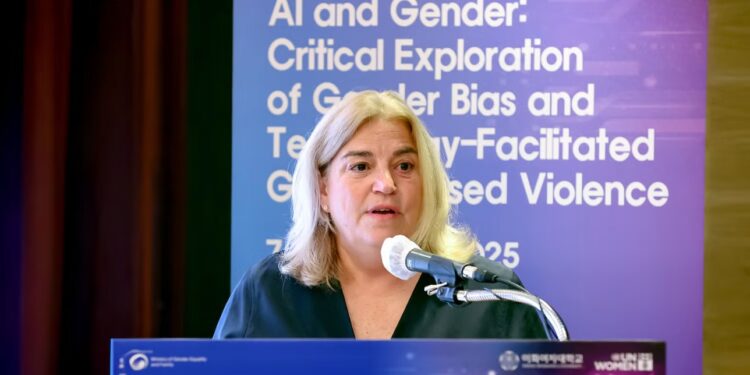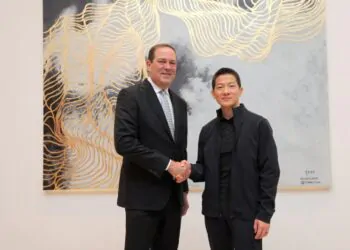In a powerful address at the Academic Conference on the Intersection of AI and Gender, UN Women Ambassador Maria Castillo Fernandez has called for urgent and ethical global governance of artificial intelligence. Speaking in Seoul, she emphasized that while AI offers immense potential for progress, its rapid, ungoverned expansion poses significant risks, particularly by replicating and amplifying existing societal biases. The ambassador’s remarks underscore a growing international consensus that without proper regulation, AI could widen the gender divide and exacerbate human rights violations.
Ambassador Fernandez noted that because AI is a human-made technology, it is susceptible to “built-in bias and discrimination.” She highlighted how AI-generated content and algorithms have been used to target and victimize individuals, often women, through misogynistic campaigns and the creation of harmful deepfakes. This digital violence, she stated, is qualitatively different from traditional crimes and can cross borders instantly, making it difficult to detect and prosecute. The ambassador praised legislative efforts like the European AI Act as a “road map for ethical and responsible AI use,” calling on the international community to move toward a unified, human-centric framework.
The concerns raised by UN Women extend beyond violence and into broader issues of economic and social inequality. AI systems, trained on historical data, often reflect and reinforce gender stereotypes, leading to discriminatory practices in areas like hiring and loan approvals. A report by UN Women’s Knowledge and Partnerships Centre revealed that out of 133 AI systems analyzed, 44% exhibited gender bias. This bias is fueled by a lack of diversity in the tech sector, where only 22% of AI professionals globally are women. Addressing this imbalance is a key component of UN Women’s strategy, which includes initiatives like the UN Women AI School to empower women as not just users, but as designers and shapers of technology.
Ambassador Fernandez’s call for action is part of a larger UN effort to establish a comprehensive, networked, and inclusive governance structure for AI. With the establishment of new mechanisms like the UN Independent International Scientific Panel on AI, the organization is seeking to bridge the gap between AI research and policymaking. The ultimate goal is to create a future where AI serves the common good of all humanity, and where the technologies that shape our world are built with equity, justice, and dignity at their core.
















